Politics
Pink October: supporting women to beat breast cancer
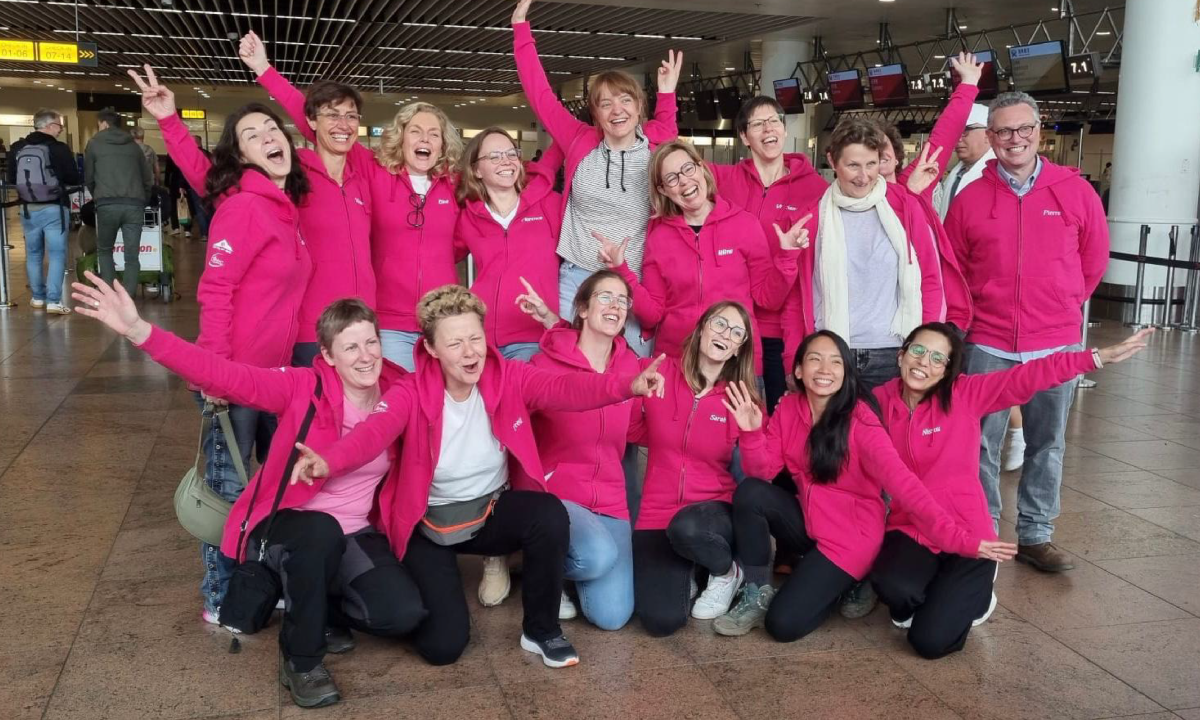
“Don’t miss a single screening – not even by a month,” says Maria, vice-president of a volunteer cancer support group in her workplace in Brussels. Maria was diagnosed with cancer in 2013 at the age of 38 through a routine check. “I was on sickness leave for a year and required heavy surgery. I was the youngest person in the hospital where I was treated – the age at which you can develop cancer is dropping dramatically.”
October is Breast Cancer Awareness month, an opportunity to raise awareness of the disease, provide support to women with breast cancer and to highlight how early screening can significantly improve the chances of a successful outcome.
The EU plays an active part in this battle to beat breast cancer. As part of its European Health Union strategy, it has put in place a Beating Cancer Plan. Through it, it is working on meaningful change in EU countries to achieve better cancer prevention, treatment, care and quality of life for all EU citizens. In 2022, new updated screening guidelines were adopted based on the latest scientific evidence for breast, colorectal and cervical cancer. The EU’s goal is to offer screening to 90% of the eligible target population across the EU.
Currently, breast cancer accounts for almost 30% of all diagnosed cancers in women in the EU. There are, however, marked differences in screening participation among countries and population groups. In 2022, the EU set up the first-ever European Cancer Inequalities Registry, to identify trends, disparities, and inequalities between and within EU countries and regions. The results feed into the EU’s future policies and investment in breast cancer treatment.
“I was on my own when I was diagnosed,” says Valentina, who is a member of Maria’s cancer support group. “The support group became like a second family to me. Life is made easier when you share with other people. Just a nice word from a colleague can make all the difference.” The group has 200 members, who have either had or have cancer or caregivers to people with cancer.
“Everyone should try to organise such a group,” says Valentina. The group provides support from advice on how to navigate “the sea of procedures” surrounding getting cancer treatment to laying on yoga classes and walks in the woods. Valentina stresses the importance of physical activity in improving energy levels following cancer treatment. “I was not really sporty before cancer,” she says with a laugh, “but now I’m exercising every weekend.”
As part of her recovery, Valentina signed up to a local scheme in Belgium which encourages women with breast cancer to engage in group physical activity to help them heal and reduce the risk of cancer recurrence. Valentina walked just over 100km in Iceland with a group of 10 women. “Even with a very heavy workload, I felt so energised when I found out I could take part.” The group called themselves Les Amazones. “We discovered only afterwards that the Greeks had made up an etymology, claiming it derived from a-mazos – without a breast. These fearsome women cut off their right breasts to remove an obstruction to the bowstring,” explains Valentina.
A fellow cancer support group member, Alice, was initially diagnosed with breast cancer while working in Niger. “I had just finished breast feeding my 15-month-old daughter and it was the beginning of COVID. The doctor told me to go back to Europe to get a biopsy and I took the last flight before the airport was closed for several weeks. Unfortunately, the biopsy was positive and my treatment began. In Niger, women do not have the same opportunities.” How does she feel about the experience now? “I’m lucky I was born in Europe,” she says.
For more information
A cancer plan for Europe
European Health Union
#GetScreenedEU campaign, with information about cancer screening programmes in EU countries
Cancer Screening, Diagnosis and Care
Politics
The European Migration Dilemma: President Metsola Calls for a Unified European Solution
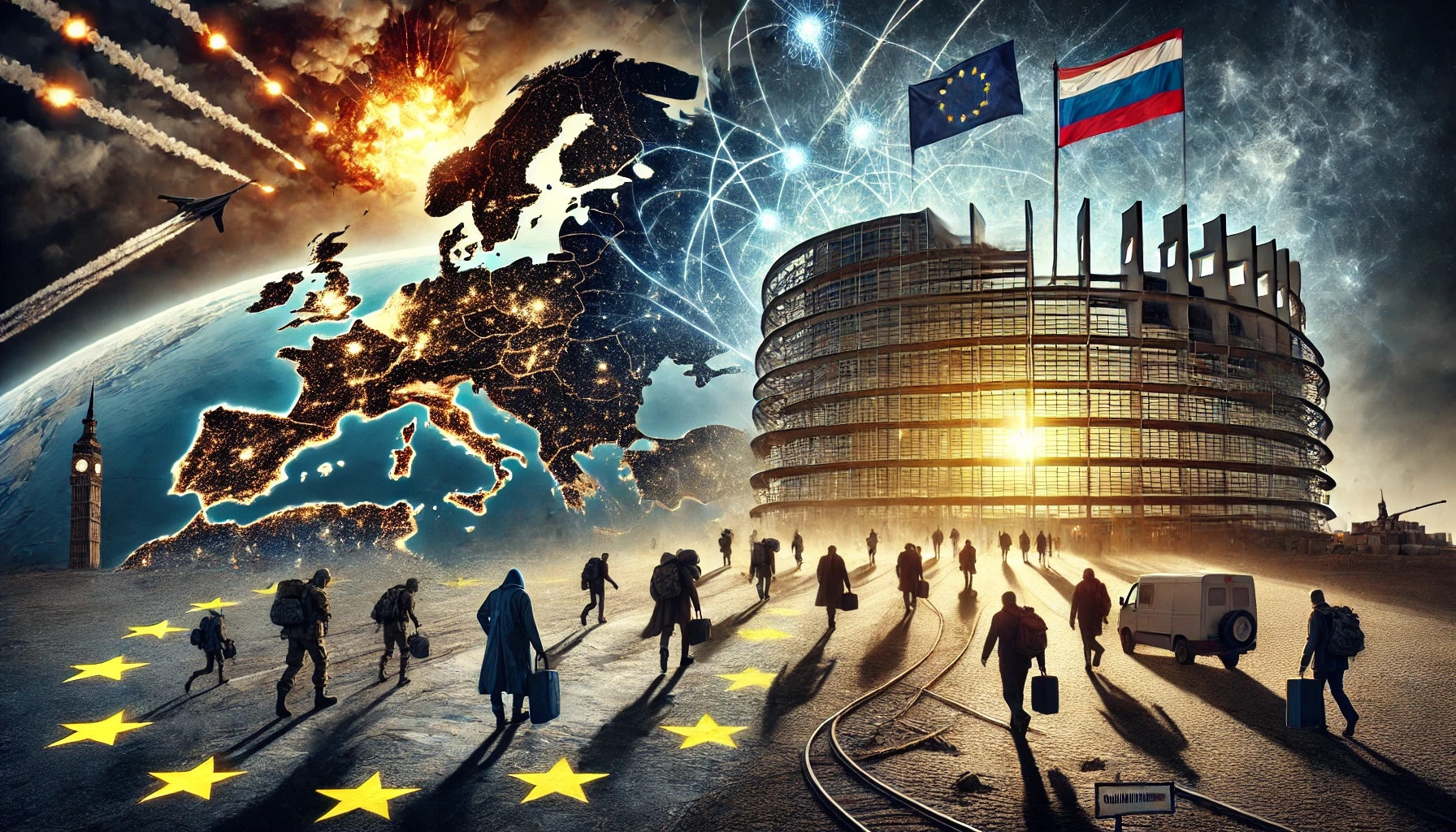
In a pivotal address to European leaders, European Parliament President Roberta Metsola underscored the critical need for a comprehensive European solution to the migration crisis, while also reaffirming Europe’s unwavering support for Ukraine amidst its prolonged conflict with Russia. Speaking from the heart of European politics, Metsola’s speech painted a clear picture of the complex and interconnected challenges that Europe faces—where migration, war, and instability ripple far beyond their immediate borders, touching the very core of European unity and values.
Standing Firm with Ukraine: “Nothing About Ukraine Without Ukraine”
Metsola began by highlighting Europe’s moral and strategic commitment to Ukraine, now approaching 1,000 days under Russian aggression. Her message was resolute: Europe must stand with Ukraine until a just and lasting peace is secured. However, she rejected any notion of peace through submission, insisting that real peace must be anchored in freedom, dignity, and justice—principles that resonate deeply within the European project.
“We will, and we must, keep standing with Ukraine,” Metsola stated, emphasizing that peace cannot be built on capitulation or compromise with aggression. Her firm stance echoed the European Parliament’s ongoing support, demonstrated by an impending vote to provide Ukraine with a Macro-Financial Assistance loan of up to 35 billion euros. This substantial aid package, she said, signifies Europe‘s commitment not only politically, but also financially, to Ukraine’s sovereignty and reconstruction.
Her words reflected the broader European consensus: Ukraine’s future belongs to Ukraine, and any solution that does not include the voices of Ukrainians is no solution at all.
The Middle East: A Call for Urgent Action
Metsola also turned her attention to the escalating tensions in the Middle East, particularly in Lebanon and Israel. Europe, she argued, cannot afford to be passive as violence and instability spread across the region. Stressing the need for a sustainable, two-state solution that secures dignity for Palestinians and safety for Israelis, Metsola reaffirmed the European Parliament’s call for an immediate ceasefire and the release of hostages.
Her words rang with a sense of urgency as she highlighted Europe’s responsibility in addressing the wider consequences of regional instability. “What happens in Eastern Europe, the Middle East, or Northern Africa does not stay isolated—there are consequences for Europe,” Metsola warned. Nowhere, she suggested, is this truer than in the sphere of migration.
Migration: A European Solution or a Fragmented Failure?
The crux of Metsola’s speech, however, centered on migration—a challenge that has long tested the resilience and unity of the European Union. With the recent adoption of the EU Migration and Asylum Pact following a decade of political deadlock, Europe now has a framework to address migration in a way that balances border security with humanitarian obligations. However, Metsola cautioned that this Pact would only succeed if European countries stand united, particularly in moments of crisis.
“The real solution is a European solution,” Metsola declared, advocating for broad, holistic, and sustainable cooperation. She pointed to the hybrid threats posed by states like Russia and Belarus, which have weaponized migration as a tool to destabilize Europe. This manipulation of human suffering for geopolitical gain has heightened the need for stronger European coordination and action.
Metsola was clear: migration is not an isolated issue. The instability in Ukraine, the Middle East, and North Africa has direct consequences for Europe, particularly in terms of migration flows. In response, Europe must not allow itself to be fragmented by external actors exploiting these crises. “We must respond to those who seek to abuse the systems we built for the betterment of man,” she urged, calling for a response that is both firm and compassionate—one that aligns with Europe’s core values of human dignity and justice.
Securing Schengen: Integrity Through Unity
Metsola’s final message was a plea to safeguard the integrity of the Schengen Area, the symbol of free movement within Europe. A failure to implement the Migration and Asylum Pact effectively, she warned, could compromise this freedom—a freedom that millions of Europeans have come to cherish as one of the Union’s most tangible achievements.
As European leaders continue to grapple with the pressures of migration, Metsola’s call for a coordinated European approach was a reminder that fragmentation is not an option. Only through solidarity, cooperation, and shared responsibility can Europe ensure the stability of its borders while remaining true to its humanitarian ideals.
Conclusion: A Challenge to European Leadership
Roberta Metsola’s speech was a call to action—a reminder that Europe’s greatest challenges, whether they be migration, war, or regional instability, can only be overcome through unity. Her message to European leaders was clear: Europe’s future rests not on isolated national policies but on a collective European solution. Only by working together can Europe protect its borders, uphold its values, and ensure peace, security, and dignity for all.
As the migration crisis intensifies and conflicts continue to threaten European stability, Metsola’s words serve as both a warning and a beacon. The time for decisive, coordinated action is now.
Politics
Vice-President Věra Jourová’s assessment of online information interference in the June 2024 elections for the European Parliament
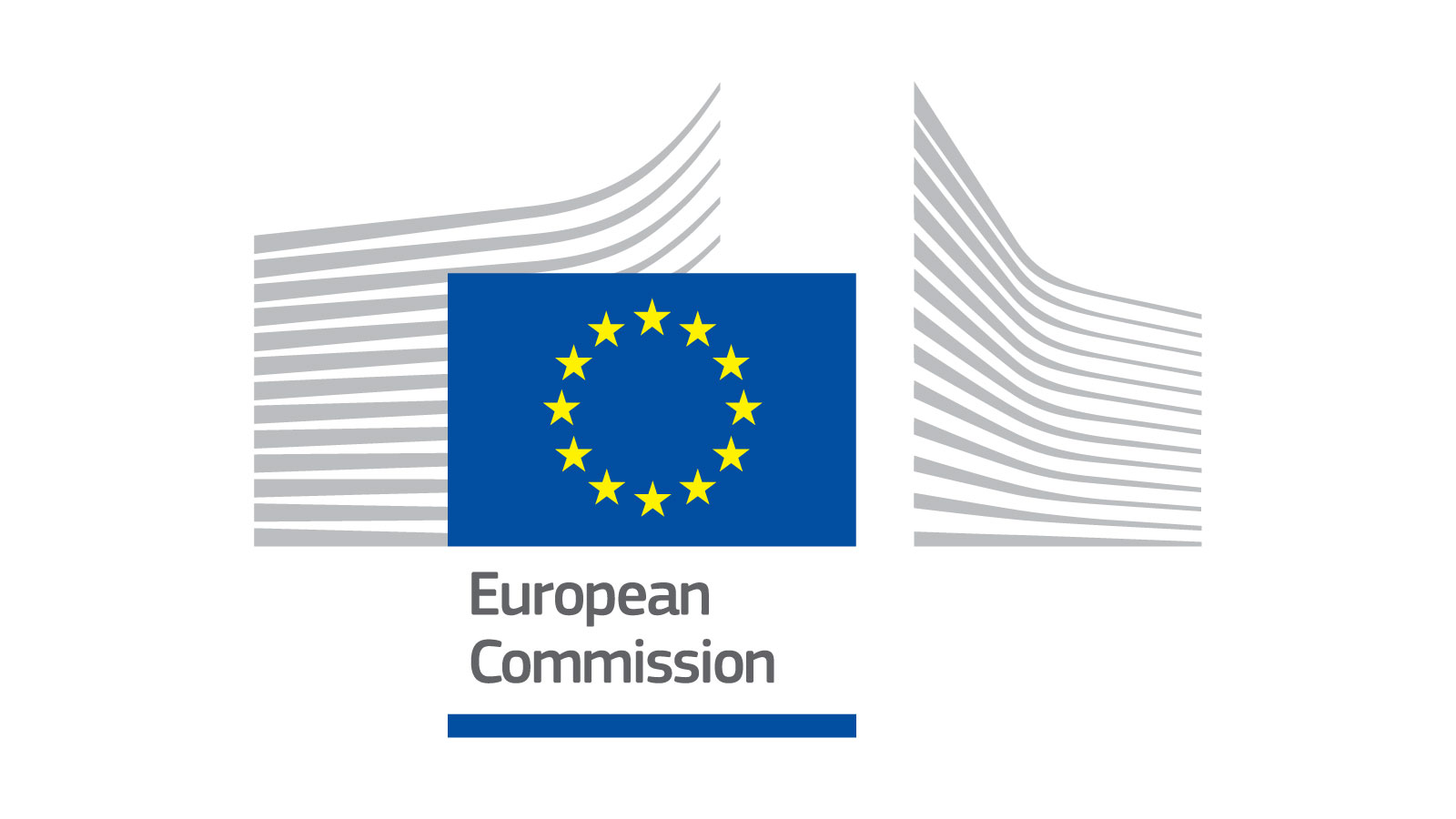
The Vice-President of the European Commission for Values and Transparency, Věra Jourová, visited half of the EU Member States between January and June 2024, in a ‘Democracy Tour’ in preparation of the elections for the European Parliament held on 6 to 9 June 2024. She discussed key aspects of the Commission recommendation on inclusive and resilient elections with national authorities responsible for conduct and integrity of elections and with representatives of civil society.
The ‘Democracy Tour’ focused on the resilience of the informational space online, and four key areas of particular threat emerged from the discussions with stakeholders: disinformation, foreign interference, the use of Artificial Intelligence (AI) technologies, and cybersecurity risks.
The Memo annexed here gathers the incidents recorded during the electoral period in connection to the four threat areas, based on data available at the time of writing. It focuses exclusively on aspects related to the information space online and does not cover other aspects such as the organisation of elections or physical threats.
It is a working document prepared to support discussions in the framework of the European Cooperation Network on Elections on 11th October 2024 on the 2024 elections for the European Parliament and closing the ‘Democracy Tour’. Prepared under the authority of the Vice-President, it is offered as input to the ongoing preparatory work on the Commission’s broader post-election report, as announced in the Defence of Democracy Package issued by the Commission in December 2023.
Based on currently available information, no major information interference operation capable of disrupting the elections was recorded. At the same time, it is widely recognised that the threat levels for information integrity during elections were high, as confirmed by the activation by the European Council of the Integrated Political Crisis Response (IPCR) arrangements for addressing foreign interference.
Politics
Local self-government in Iceland, Latvia and Malta: Congress adopts new recommendations
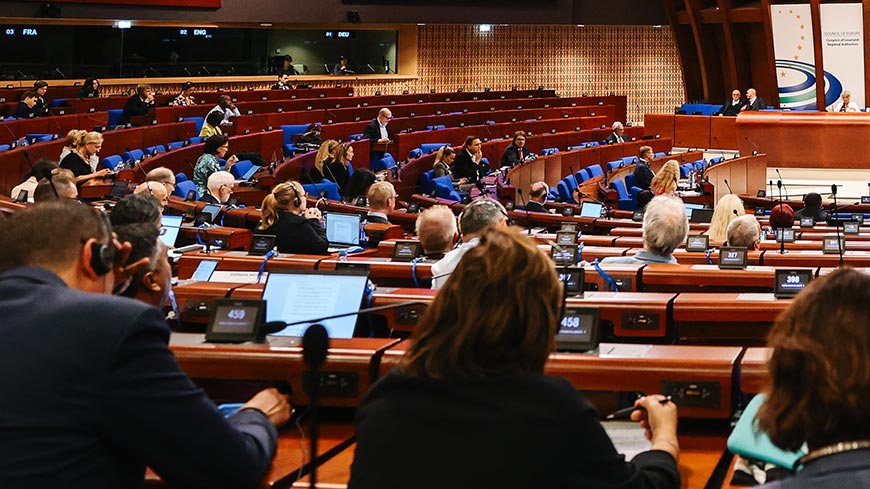
The Congress of Local and Regional Authorities of the Council of Europe at its 47th session has adopted recommendations on the application of the European Charter of Local Self-Government by Iceland, Latvia and Malta.
The Congress has called on Iceland to incorporate local self-government into domestic law. It concluded that Icelandic municipalities lead globally in terms of female voting and representation and welcomed the high level of fiscal autonomy in the country’s local self-government. However, despite previous Congress recommendations, Iceland did not incorporate local democracy and self-government principles into its law to ensure a clear division of responsibilities between central and local authorities.
Latviashould strengthen financial autonomy at local level, recommended the Congress. It called for an increase of revenue potential at the local level, aligning local financial resources with local competences, simplifying supervision and clarifying the division of competences.
As for Malta, the Congress praised it for Malta praised the 2019 local government reform, the lowering of the minimum age for local elections to 16, and Malta’s ratification of the Additional Protocol to the European Charter of Local Self-Government on the right to participate in the affairs of a local authority. However, it local authorities’ competences should be increased and administrative supervision limited.
-

 EU & the World6 days ago
EU & the World6 days agoIs Disney World Open After Hurricane Milton? AI Photos of Fake Flooding Circulate Online
-

 Sports4 days ago
Sports4 days agoItaly, Daniel Maldini doesn’t hide his excitement
-

 Sports5 days ago
Sports5 days agoPep Guardiola opens to a return to Italy
-

 Sports5 days ago
Sports5 days agoMarathon, new women’s world record
-

 Sports4 days ago
Sports4 days agoNations League: Italy poker, overcome Israel. Azzurri one step away from the quarters
-

 Sports3 days ago
Sports3 days agoPhysical problem in national team: Piotr Zielinski scares Inter Milan.
-

 Sports6 days ago
Sports6 days agoVirtus Bologna, Luca Banchi not satisfied: ‘Head for Euroleague’
-
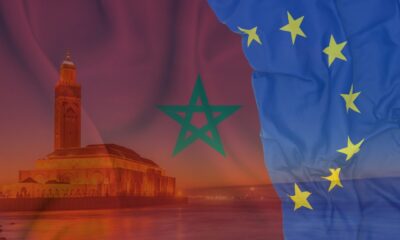
 Africa4 days ago
Africa4 days agoThe European Union and Morocco: Navigating Trade Relations and Geopolitical Issues









